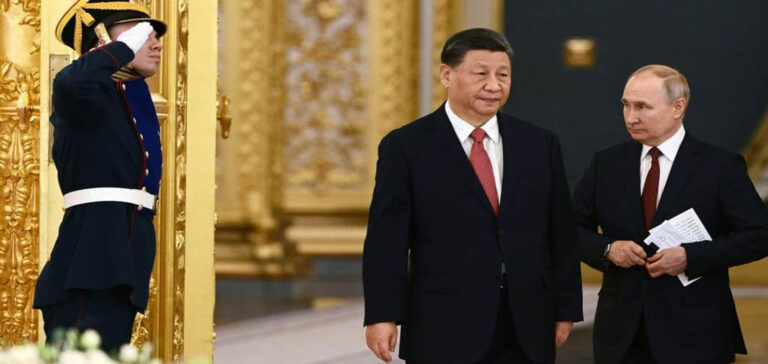Russia is significantly strengthening its energy cooperation with China. Recent moves to increase energy cooperation between these two giants have far-reaching implications for global energy markets. Let’s take a closer look at how this strategic alliance is evolving and its impact.
Russia becomes China’s main oil supplier
The figures speak for themselves: Russia is now China’s main oil supplier. In 2023, over 75 million tonnes of Russian oil were delivered to China, surpassing Saudi Arabia. This growth represents a significant increase of 25% over the previous year. Russia has succeeded in strengthening its position on the Chinese oil market.
Unprecedented energy cooperation
President Vladimir Putin has stressed that energy relations between Russia and China have reached an “unprecedented” level. This energy cooperation extends far beyond oil. According to Rosneft CEO Igor Setchine, energy now accounts for “over 75% of Russian exports to China”. The two countries are working together to secure their energy future.
Russian gas exports reach record levels
Despite infrastructure challenges, Russia manages to increase its gas exports to China. Russian gas exports to China will reach a new all-time record this year, exceeding 30 billion cubic meters of gas. This was made possible by the “Siberian Force” pipeline, which links the two countries. Russia is also considering the construction of another major pipeline, “Siberian Force 2”, which could almost double gas exports by 2030. This expansion strengthens Russia’s position as China’s key energy partner.
Russia in search of new energy markets
Western sanctions have restricted Russia’s access to the European energy market, prompting Moscow to seek out new markets. This makes cooperation with China essential for Russia. With Europe having largely closed its gas market following sanctions and the sabotage of the Nord Stream pipelines, Russia is increasingly turning to Asia for its energy exports.
A sustainable energy alliance
This energy alliance between Russia and China has the potential to reshape global energy dynamics. It offers Russia a stable market for its exports, while China secures its energy supplies. The two countries are working on new energy infrastructure projects that will further strengthen their partnership. By 2030, “Siberian Force 2” should enable Russia to increase its gas exports to China to almost 100 billion cubic meters of gas per year. This demonstrates the two nations’ long-term commitment to energy cooperation.
Russia and China are strengthening their energy partnership, becoming key players on the global energy scene. Russia has become China’s main oil supplier, and gas exports to China are reaching record levels. This unprecedented energy cooperation is essential for both countries at a time when global energy markets are changing. It testifies to our long-term commitment to a sustainable energy alliance.






















